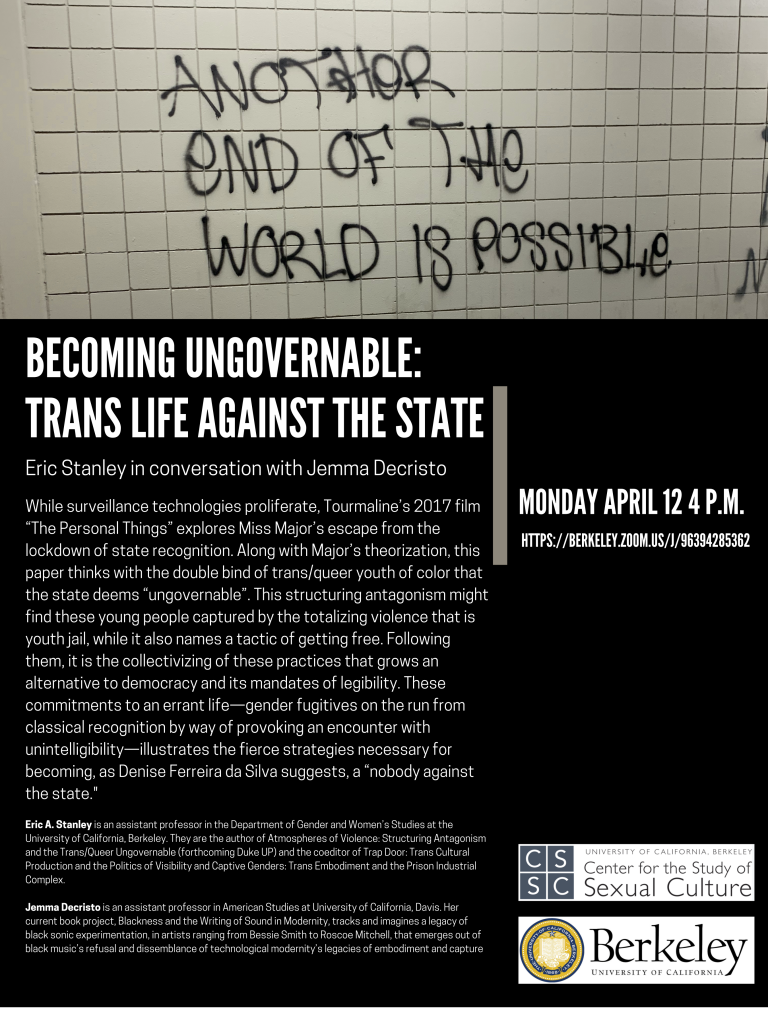This past spring CSSC had the pleasure of hosting UC Berkeley professor Eric Stanley for their talk, “Becoming Ungovernable: Trans Life Against the State,” and conversation with Dr. Jemma DeCristo.

While surveillance technologies proliferate, Tourmaline’s 2017 film “The Personal Things” explores Miss Major’s escape from the lockdown of state recognition. Along with Major’s theorization, this paper thinks with the double bind of trans/queer youth of color that the state deems “ungovernable”. This structuring antagonism might find these young people captured by the totalizing violence that is youth jail, while it also names a tactic of getting free. Following them, it is the collectivizing of these practices that grows an alternative to democracy and its mandates of legibility. These commitments to an errant life—gender fugitives on the run from classical recognition by way of provoking an encounter with unintelligibility—illustrates the fierce strategies necessary for becoming, as Denise Ferreira da Silva suggests, a “nobody against the state.”
Eric A. Stanley is an assistant professor in the Department of Gender and Women’s Studies at the University of California, Berkeley. They are the author of Atmospheres of Violence: Structuring Antagonism and the Trans/Queer Ungovernable (forthcoming Duke UP) and the coeditor of Trap Door: Trans Cultural Production and the Politics of Visibility and Captive Genders: Trans Embodiment and the Prison Industrial Complex
Jemma DeCristo is an assistant professor in American Studies at University of California, Davis. Her current book project, Blackness and the Writing of Sound in Modernity, tracks and imagines a legacy of black sonic experimentation, in artists ranging from Bessie Smith to Roscoe Mitchell, that emerges out of black music’s refusal and dissemblance of technological modernity’s legacies of embodiment and capture
